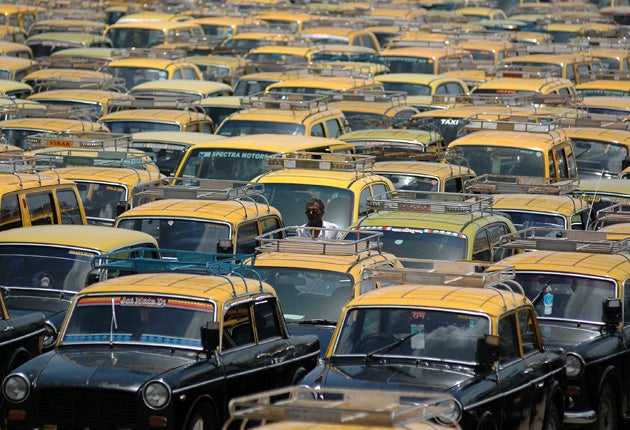Protests over fuel prices paralyse parts of India

Your support helps us to tell the story
From reproductive rights to climate change to Big Tech, The Independent is on the ground when the story is developing. Whether it's investigating the financials of Elon Musk's pro-Trump PAC or producing our latest documentary, 'The A Word', which shines a light on the American women fighting for reproductive rights, we know how important it is to parse out the facts from the messaging.
At such a critical moment in US history, we need reporters on the ground. Your donation allows us to keep sending journalists to speak to both sides of the story.
The Independent is trusted by Americans across the entire political spectrum. And unlike many other quality news outlets, we choose not to lock Americans out of our reporting and analysis with paywalls. We believe quality journalism should be available to everyone, paid for by those who can afford it.
Your support makes all the difference.Opposition workers set buses on fire and hurled stones as a nationwide strike over higher fuel prices shut down parts of India yesterday in a test of the government's efforts to cut subsidies and trim a budget deficit.
The response to the strike, the biggest by the opposition in recent years, was mixed and analysts said the government was unlikely to back down. There was a total shutdown in opposition-ruled states. However, business was mostly normal in regions ruled by the Congress Party that also heads the central government.
Many flights were cancelled and streets emptied in response to the strike called by the main opposition Hindu-nationalist Bharatiya Janata Party (BJP) and the leftist bloc as the Congress attempts to push key reforms. The government is expected to stick to its decision, encouraged by tacit support from parliamentary allies and the fact the strike was successful only in opposition strongholds.
"This is a case where the opposition has come together on an immediate issue, but it doesn't mean this will bring pressure on the government to roll back the hike in petrol prices," said D H Pai Panandiker, head of the think tank, the RPG Foundation.
"The need for fiscal prudence is far greater than populism and the government understands that."
The government retained power last year largely on a social-spending agenda but says it must curb costly subsidies to stay on target to cut the deficit to 5.5 per cent in 2010/11.
Yesterday, businesses were largely shut in the financial capital, Mumbai, though stock and bond markets were open. One industry lobby put the cost of the strike at more than $640m (£423m) in lost business across India.
With an eye on elections in the coming months, the Congress Party's allies will publicly complain about inflation but analysts said that they still support the measures. However, they are are likely to be less supportive of more painful reforms that Prime Minister, Manmohan Singh, wants to push through, such as opening up the insurance and banking sectors.
Join our commenting forum
Join thought-provoking conversations, follow other Independent readers and see their replies
Comments